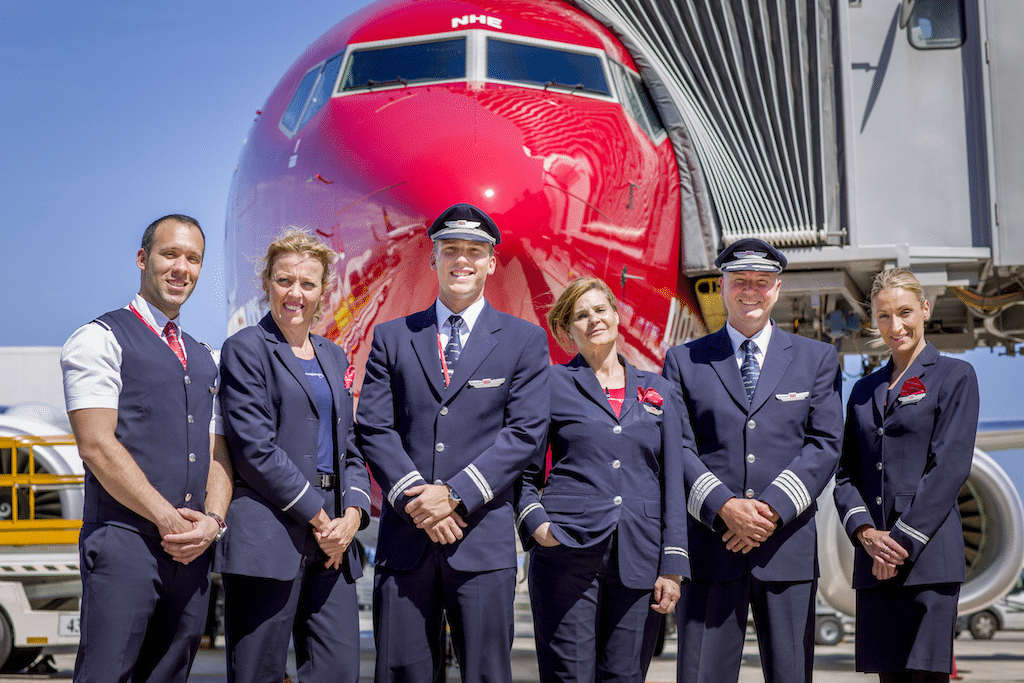Norwegian Air Makes Concession on Pilots in Bid for U.S. Approval

Skift Take
With its U.S. Department of Transportation application for a foreign carrier permit stuck in limbo since late 2013, Norwegian Air International is ready to commit to using only European and U.S. pilots and crews on its transatlantic flights.
Norwegian, which today announced new routes from Boston, Baltimore/Washington, D.C. and New York to the Guadeloupe Islands and Martinique, all with free Wi-Fi and introductory $79 fares one-way, currently operates 25 nonstop routes from the U.S. to London and Scandinavia.
Under the U.S.-EU Air Transport Agreement, Norwegian can fly from EU countries, Iceland and Norway to the U.S. and its territories. The new service from the U.S. to Guadeloupe and Martinique is permissible because these Caribbean islands are overseas departments of France.
But Norwegian applied to the DOT for a foreign air carrier permit that would give it a much broader range of flying options. The permit would enable Norwegian to fly from EU countries and intermediate points to the U.S. and beyond, as well as operate "scheduled and charter cargo air transportation between any point or points in the United States and any other point or points," according to the 2013 application.
Opposition and An Unusual Proposal
With a flurry of opposition to the application from big U.S. airlines and labor unions spurred by competition concerns and Norwegian's alleged practice of hiring pilots and crew in several Asian countries in order to pay them substandard wages, the U.S. DOT has not made a ruling on the permit request.
That's where Norwegian's new pledge to only use American and European pilots on its transatlantic flights comes in.
"As you know, our application has not been pending more than 15 months, the longest ever processing time for such an application," Norwegian Air Shuttle CEO Bjorn Kjos wrote to the DOT [see letter below] earlier this month.
Kjos wrote that the airline's labor practices and compensation for pilots and crew "compare favorably to the practices of other airlines" but he conceded that "opponents' assertions" appear to be blocking at DOT decision on the application.
"... NAI (Norwegian Air International, the low-cost subsidiary of Norwegian Air Shuttle) is now in a position to commit to use only European and U.S. pilots and crews on NAI transatlantic flights (except if compelled by extraordinary and unforeseen operational reasons)," Kjos told the DOT.
Labor Practices
Opponents of Norwegian's application for a U.S. foreign carrier license had charged that the airline was contracting with pilots in several Asian countries and paying them wages well below market rates.
While Norwegian doesn't work with self-employed pilots and crew, Kjos wrote that Norwegian "has regularly utilized the services of employment agencies for the recruitment and temporary provision of crews" for two to three years when it opens new bases.
In his letter to the DOT, Kjos states that the airline is poised to open a third U.S. base in Los Angeles or San Francisco to supplement existing bases at JFK and Fort Lauderdale as the airline looks to expand operations in the U.S.
Norwegian, Kjos wrote, then offers these pilots and crew jobs in the Norwegian Group at the end of the transitional periods.
Norwegian is trying to do everything it can to prod the DOT to approve its foreign air carrier permit, an application that has the support of the EU and appears to be stuck in some drawer at the DOT because of U.S. airline, labor union and political opposition.
Choosing Pilots by National Origin
Norwegian's proposal to only use American and European pilots and crews is geared to appease opponents of its DOT application under the assumption that these Norwegian employees would receive competitive compensation by U.S. and EU standards and hence the playing field would be leveled.
It isn't clear whether this concession would be enough to persuade the DOT to approve the application.
Henry Harteveldt of Atmosphere Research Group questions whether Norwegian's concessions on pilot and crew will be enough to convince DOT officials to approve the airline's application.
"There are objections that Norwegian Air International is using Ireland as a 'flag of convenience' for its operations, which allows NAI to avoid Norwegian labor regulations," Harteveldt says. "Plus, the U.S. pilots will work directly for the employment agency, rather than NAI. Perhaps the DOT will determine that this may further reduce their rights and protections as employees. As a result, DOT may either withhold approval or require NAI to directly employ the crews as a condition to receive their permit."
But is it really wise to sanction a system that would bar Norwegian pilots who might reside in Asia or elsewhere from flying its transatlantic routes based on their country of residence or national origin all in the name of labor standards?
[gview file="https://skift.com/wp-content/uploads/2015/06/20150601160858-3.pdf"]





